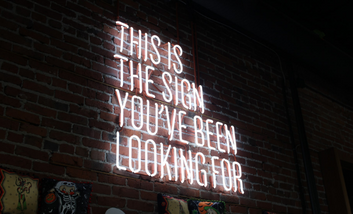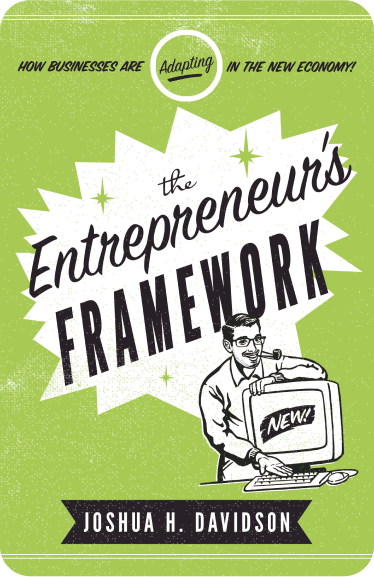Powerful brands are actually individuals with their own unique personalities.
If they weren’t, no one would be able to tell them apart from a line of products and services offering the same thing. This goes further than just reliability.
It taps into our collective subconscious by mirroring our shared human needs.
This helps us as business operators and marketers to create consumer connections that feel almost instinctual.
In 1954, Carl Jung described this phenomenon as ‘archetypes.’ These can be observed repeating across cultures and generations over the decades, helping to shape our collective human experience. From historical figures, celebrities and some of your favorite movies in Hollywood — to all across the literary pages, archetypes can be seen in our most beloved (and bemoaned) personas.
Archetypes are essentially the heart of a brand in the eyes of the consumer. So, they convey meaning that makes customers relate to them as if they actually were alive in some way.
We explore the importance of archetypal brand marketing in a series of posts like this on our blog, so keep up with us and explore all across our blog to learn more. There is a lot to cover here!
In this post, we explore the Lover archetype and its different sub-archetypes.
Let’s get into it!
Brands Yearning to Connect with the World
While all brands seek to connect on some level with consumers, the Lover archetype likes to take things to the next level.
Whether through inspiring a sense of belonging, enjoyment or intimacy, connection is the name of the game.
Yearning for connection, the Lover archetype is an idealist at heart, dreaming not only of sensual pleasure and true love, but also celebrating familial bonds and friendship.
Lover brands typically seek to make consumers fall in love with them, or promote self-love and personal acceptance (or in many cases, both!).
Examples of Lover Brands include: Magnum Ice Cream, Chanel, and Ulta. This archetypal branding is commonly adopted by indulgent food and drink brands, as well the beauty, fashion and cosmetics industry.
Evoking Feelings of Connection and Love: The Lover Archetype Family

The Lover archetype can be viewed from a few different angles, depending on which specific attributes are at play.
The Lover
Always passionate, the Lover is all about intimacy and promoting togetherness. However, it’s not always about romantic love.
The Lover’s DNA can push beyond romantic feeling to a state of spiritual being too.
The Lover appreciates beauty in all forms and values relationships. The challenge facing the Lover is letting the fear of being alone, disconnected, or ultimately, unloved, overpower them.
Real-World Example: Gucci [The meaning behind their brand is so well-known, the name “Gucci” turned into an eponymous adjective to describe something that feels like the high-flying luxury of Gucci.]
The Companion
The Companion is loyal and trustworthy, and is the comrade and confidante we turn to when we need a helping hand or a patient ear.
This sub-archetype holds a deep respect for a person’s inherent value and values relationship. The Companion may be devoted to a fault — potentially leading to loss of self and a rise of dependency.
Real-World Example: Guide Dogs of America Our mission is to transform lives through partnerships with service dogs.
The Hedonist
The Hedonist is the erotic, sensual sub-archetype. Living in the moment, and in the pursuit of pleasure, the Hedonist seeks out the exciting things in life to indulge in.
Out of all the Lover sub-archetypes, the Hedonist’s messaging is most likely to have humourous undertones. The Hedonist must be careful of indulging too much, and be wary of showing disregard for others in pursuit of pleasure.
As a result of seeming too self-involved, this branding can sometimes alienate consumers, rather than drawing them in.
Real-World Example: Trojan Pleasure you want. Protection you trust.
The Matchmaker
The power of human connection and relationship dynamics are well understood by the Matchmaker, and this sub-archetype acts as an intermediate to bring people together.
Using strategy and intuition to spot patterns that can facilitate connections, the Matchmaker’s challenge is in allowing intuition to remain the guide when tempted to let judgment and personal agenda take over.
Real-World Example: eHarmony Love is Closer Than You Think
Marketing for Lover Brands
Marketing for Lover brands focuses on how a product or service makes customers feel, while also seeking to make them feel appreciated, and accepted. At the extreme, marketing can be incredibly sensual. It draws on our human need for connection.
Brand Messaging
- At times, suggestive imagery to evoke sensations
- Adjective-rich language
- High-focus on aesthetic
- A polished, “high-class” presentation
- Promoting self-love and acceptance
Common Brand Colors
- Gold: Wealth, Wisdom, Valuable, Traditional
- Red: Love, Power, Excitement, Boldness, Youthful, Passion, Energy, Heat, Strength, Desire, Sensuality, Intensity, Speed
- Pink: Happy, Healthy, Feminine, Sweet, Playful, Energy, Passionate, Romance
From color palettes to typography and imagery, honing in on your brand’s ‘voice’ will both accent and inform all of your decisions when it comes to messaging and presentation.
Evolution of Lover Brands

There are different levels to be achieved in a given archetype, depending on the strength of the displayed persona, and the brand’s evolution.
The general rule of thumb being, the higher level attained, the more success and wider net that can be cast to attract consumers.
Level 1 of the Lover archetype is pretty surface level, in terms of intimacy. This is where we find the pure pleasure-seekers — the casual fling or one-dimensional friendships. Connections may be established and are likely even passionate, but they are not truly intimate or personal.
Level 2 of the Lover is all about forming deeper attachments and establishing commitments with who and what we love. We find fulfillment in these relationships.
Level 3 brings us to spiritual love on a higher plane. Stemming from oneness and connection to others, it is a love that extends to mankind as a whole.
Is Your Brand a Lover?
If this post resonates with you and your company’s mission and values, it’s entirely possible!
Many brands possess archetypal qualities within their messaging that they’re often entirely unaware of.
Brand storytelling is far from a new art form, but it is more and more essential to achieve success in a highly competitive marketplace.
So, learn it. Know where your brand falls in this spectrum. And use it to establish marketing guidelines and company operations at a cultural level too.
To start, ask yourself these questions:
- Which archetype do your competitors most resemble?
- Which archetypes do your customers resemble?
- What drives them (customers and competitors)?
- How can your brand do things differently from your competitors?
- What role does your brand play in customers’ lives?
Then, look within.
- What is your team culture like? (their personalities, interests, etc.)
- What motivates team members to come in for work?
- What are your company values?
Final Thoughts on Branded Archetypes and the Lover
Take a look at our recent blog post on the Jester Archetype, and see if that idea resonates with you more!
Remember, choosing an archetype to be your compass can help to guide and shape your brand.
Can you name any Lover brands? Let us know in the comments.
Since 2009, we have helped create 400+ next-generation apps for startups, Fortune 500s, growing businesses, and non-profits from around the globe. Think Partner, Not Agency.
Find us on social at #MakeItApp’n®

















